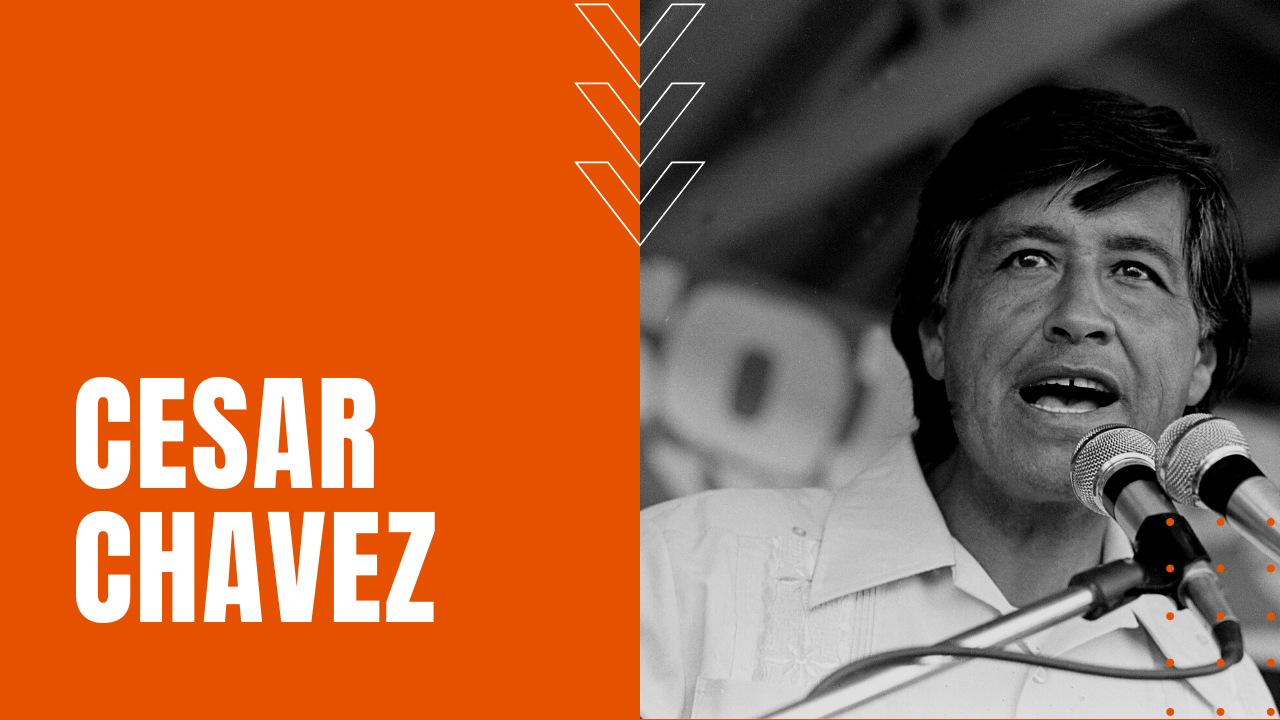Who Was Cesar Chavez?

Cesar Estrada Chavez was an American civil rights activist and labor leader who was born in Yuma Arizona on March 31st, 1927, and when the Chavez family lost their Arizona farm during the Great Depression, they moved to Northern California in search of new opportunities.
Lacking capital or many options, the Chavez family became migrant farmworkers, and to help support his family, Cesar dropped out of school after the eighth grade to work in the fields of the San Joaquin Valley. Cesar joined the Navy right after World War Two, which did much to open his eyes to a larger world view.
Cesar Chavez the Activist
After his honorable discharge, Cesar returned to the fields, soon becoming a grassroots leader for a Latino civil rights group. A short time later, Cesar stepped up his activism by forming the National Farmworkers’ Organization in conjunction with Dolores Huerta, now known as the United Farmworkers of America, whose original goal was to organize farm workers for better pay and working conditions.
Cesar believed passionately that the movement he founded had to be more than a union that worked solely to improve wages, hours and working conditions, although the UFW certainly achieved all three, but he felt the union also needed to address the crippling dilemmas that farmworkers faced in their individual communities after they came home from work. Most farmworkers were poor, leaving them little access to good housing, healthcare or education, and to achieve improvements in these areas, Chavez was adamant about using nonviolent tactics as a means of negotiation with corporate farm owners.
Grape Boycott
While the union was still in its infancy, UFW embarked upon one of the most influential boycotts in U.S. history, inspiring the consumer purchase boycott on all California table grapes sold in grocery and liquor stores across the nation. Cesar knew that for the last 100 years, all farmworker strikes had been brutally crushed, so what Cesar needed to do was to take the fight out of the fields, where the odds were stacked against the farmworker, and move that fight to the cities, where farmworkers at least stood a chance at gaining public sympathy and support for their cause.
Over the next few years, Cesar and his farmworkers would boycott, protest, march and fast their way into a collective bargaining agreement with corporate farm owners in California, which guaranteed farmworkers—among other things—increased pay and the right to unionize.
Social Justice: Vietnam and Gay Rights
In later years, Cesar’s commitment to social justice went far beyond the farmworker, when in the 1960s he became a strong opponent to the Vietnam War, while in the 1970s, he became an early and quite vocal supporter of gay rights, which in many instances didn’t sit well with his original farmworker constituency. Cesar Chavez died in his sleep on April 23rd, 1993 at the age of 66, while in 1994, he was posthumously awarded the Presidential Medal of Freedom by President Bill Clinton.
